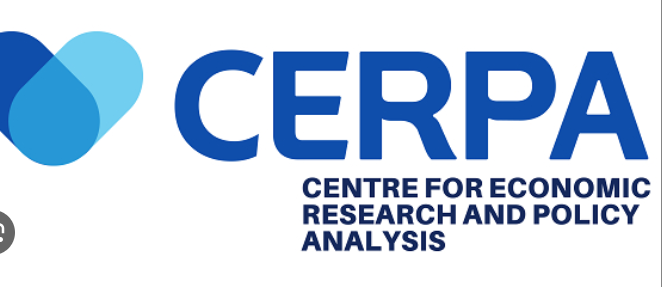The Centre for Economic Research and Policy Analysis (CERPA) has called for sustained economic discipline and targeted policy interventions to maintain the recent appreciation of the Ghanaian cedi, which has become the world’s best-performing currency in 2025.
In a new policy brief released on May 14, CERPA analyses the drivers behind the cedi’s nearly 16% gain against the US dollar and outlines the economic benefits and risks associated with the currency’s rebound.
Once one of the weakest in Sub-Saharan Africa in 2024, the cedi has seen a dramatic turnaround this year due to a combination of local reforms and favourable global conditions.
Key Drivers Behind the Cedi’s Appreciation
According to CERPA, the appreciation is largely attributed to:
Gold Reserve Accumulation: A 40.6% increase in the Bank of Ghana’s gold reserves between May 2024 and April 2025 has strengthened market confidence.
Improved Fiscal Discipline: Reduced government spending and adherence to IMF-backed reforms have restored investor trust.
Higher Export Earnings: Increased prices for gold and cocoa, particularly through formalized small-scale mining, have boosted foreign exchange inflows.
Debt Servicing Suspension: A temporary pause on external debt payments has eased pressure on forex reserves.
Favourable Global Conditions: A weakening US dollar has lessened external exchange rate pressures.
Economic Impact
CERPA notes that the cedi’s appreciation has yielded several positive outcomes:
Reduced Inflation: Headline inflation fell from 23.8% in December 2024 to 21.2% in April 2025.
Lower Debt Burden: The stronger cedi has decreased the cost of repaying foreign debt.
Boosted Investor Confidence: Increased foreign reserves and a stable currency environment are drawing investor interest.
Real Sector Support: Lower Treasury bill rates and reduced currency speculation may encourage lending to productive sectors.
Potential Risks and Trade-Offs
Despite the positive outlook, CERPA warns of possible downsides. A stronger currency could weaken Ghana’s export competitiveness and increase reliance on imports. The recent imposition of a 10% U.S. tariff on Ghanaian exports could further undermine the competitiveness of local industries.
Policy Recommendations
To sustain the cedi’s gains and avoid potential setbacks, CERPA recommends:
Maintaining fiscal discipline to ensure macroeconomic stability.
Encouraging the reinvestment of foreign profits to support the forex market.
Promoting import substitution through support for local industries and agriculture.
Strengthening the gold purchase programme to secure reserve backing.
Implementing targeted monetary policies to keep inflation in check.
Attracting sustainable foreign direct investment (FDI) and diversifying exports.
The Way Forward
CERPA concludes that while the cedi’s appreciation is a positive sign, it remains fragile without consistent economic management. A coordinated strategy that strengthens exports, supports domestic production, and maintains investor confidence is crucial to turning recent gains into long-term resilience.
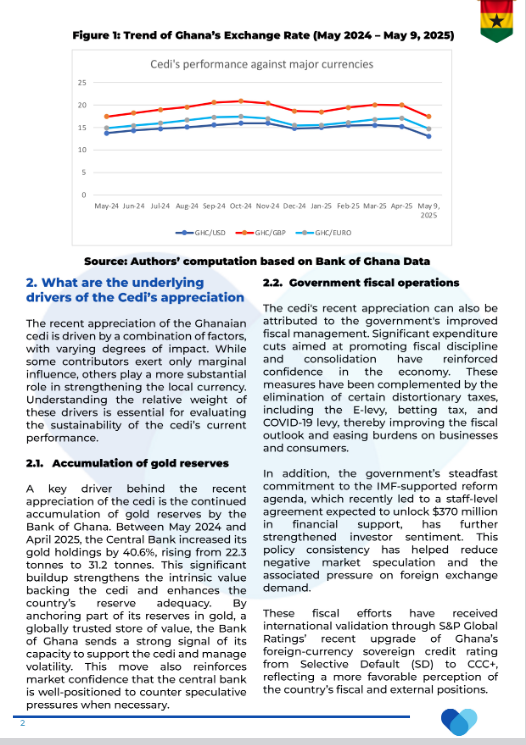
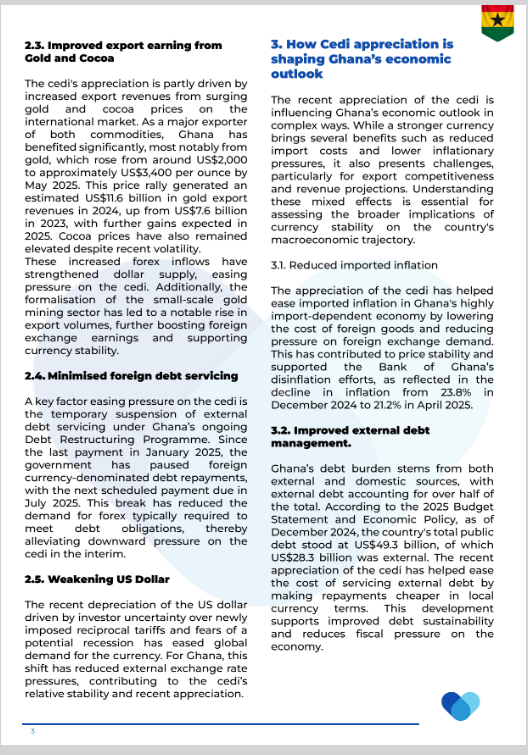
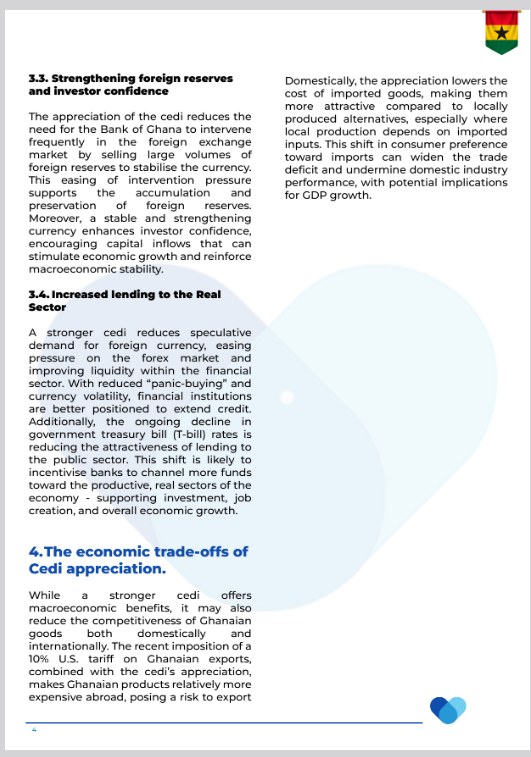
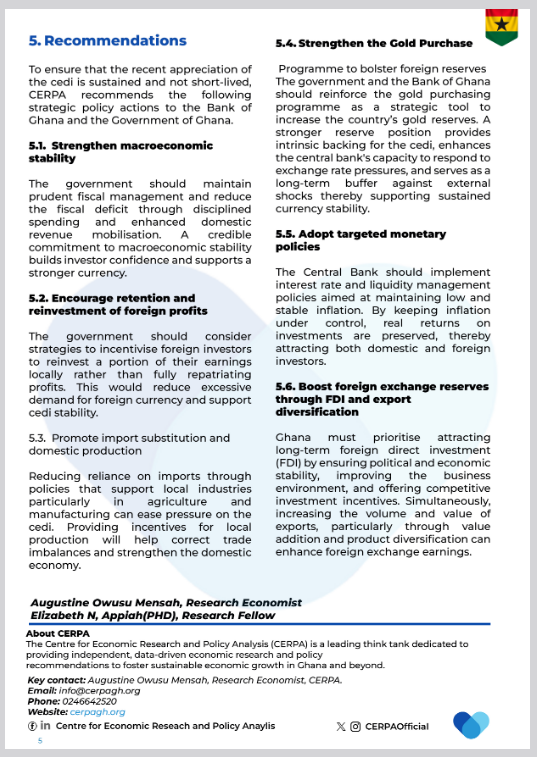
READ THE FULL CERPA STATEMENT HERE
Read also
GUTA, AGI set 60-day deadline to cut prices as Cedi strengthens
